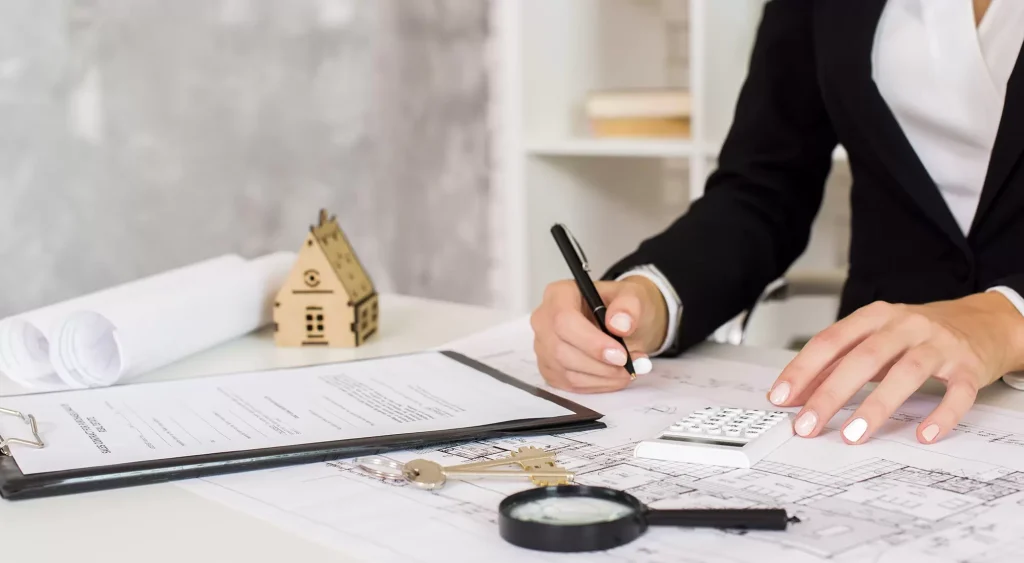Evaluating the value of a property is a crucial step when buying, selling, or investing in real estate. It involves assessing various critical factors to determine its market worth.
Understanding these aspects can help you make informed decisions and maximize your investment returns. In this blog post, we will explore these essential elements to consider for a thorough property evaluation.
Location and neighborhood

Location plays a significant role in determining the worth of real estate. A property’s vicinity to amenities such as schools, hospitals, and shopping centers can significantly impact its market price. Moreover, properties situated in safe and well-maintained neighborhoods usually command higher prices.
Evaluating the quality of schools and access to public transportation is paramount for families and commuters. Areas with planned future developments can also be promising for property appreciation.
Additionally, the crime rate in the area is a factor that cannot be overlooked. Buyers often prioritize safety, and properties in low-crime areas tend to hold their value better. Proximity to parks and recreational areas can also be a significant draw for families and individuals alike.
When evaluating location, it is wise to look at recent sales of similar properties in the area. This can provide a benchmark for what buyers are willing to pay and help assess if a property is over or under-priced.
Property condition
The physical state of a property is another major consideration. A well-maintained property is likely to have a higher market value. Inspecting the structure, plumbing, electrical systems, and the state of the roof can reveal the property’s true condition. Minor repairs might not deter buyers, but major structural issues can significantly decrease a property’s value.
Not only does the current condition matter, but also the potential for future expenses. Evaluating the age and quality of major components like the HVAC system, water heaters, and appliances can give insight into upcoming maintenance costs. Renovations and upgrades, when done well, can add substantial value. However, poor workmanship or outdated designs may have the opposite effect.
Size and layout
The size and design of the property are critical in the evaluation process. Generally, larger homes with more square footage are valued higher. However, the layout also plays an important role.
An efficient layout that maximizes space can make even smaller properties feel more valuable. Consider the number of bedrooms and bathrooms as well. Families typically look for properties with multiple bedrooms and bathrooms for convenience.
Open floor plans have become increasingly popular and can add value due to their flexibility and modern appeal. Additionally, storage space, closets, and garages are features that buyers often prioritize. Properties lacking these may be at a disadvantage in the market.
Market conditions and economic factors
Market trends and broader economic conditions significantly influence property valuations. During a seller’s market, with high demand and low inventory, property values tend to rise. Conversely, in a buyer’s market, where there are more properties than potential buyers, values can decrease.
Interest rates are another critical factor. Lower interest rates generally make borrowing cheaper, boosting demand and driving up property prices. Higher rates can have the opposite effect, reducing affordability and demand.
Economic conditions, such as employment rates and wage growth, also play a role. A robust economy with job growth and increasing wages can lead to higher property demand and rising prices.
Comparable sales
Analyzing recent sales of similar properties in the same area, known as comparables or “comps,” is essential. This comparison helps you understand the prevailing market conditions and provides a realistic estimate of your property’s worth.
Look for properties that are similar in size, condition, and features. The sale prices of these homes can give you a strong indication of what buyers are willing to pay in your area. Adjustments may need to be made if there are differences in features, like an extra bathroom or a finished basement, which can add or subtract value.
Future development plans
Potential future development in the area can significantly impact property values. New infrastructure, like highways or public transportation projects, can make an area more attractive to buyers, driving up prices.
Conversely, undesirable projects, such as factories or waste management facilities, can negatively affect property values. Being aware of zoning changes and proposed developments can help you understand the future potential of your property.
Real estate professionals and local government resources can provide valuable insights into planned developments and zoning regulations that might affect property values.


